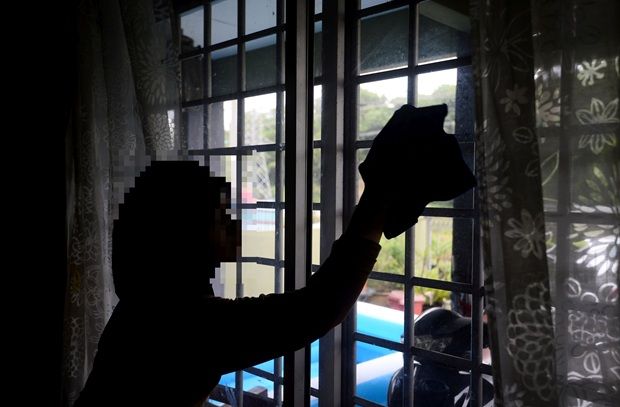Experts urge for wives to be recognised, receive financial support
PETALING JAYA: Economists have urged policymakers to formally recognise the contribution of homemakers to the economy, warning that the undervaluation of unpaid care work risks undermining Malaysia's long-term resilience.
Prof Barjoyai Bardai said housewives should be valued as skilled workers with structured benefits.
"We need to start by placing value on them and treating them like skilled employees.
"They should have Employees Provident Fund (EPF) contributions, insurance and, eventually, progress towards market-based pay," he told The Star yesterday.
He noted that in Malaysia, the role of a homemaker is often equated with that of a domestic helper, typically paid around RM2,000.
"That is not the true value of a housewife. In the UK and Europe, they have long moved beyond the era of domestic helpers.
"Families hire governesses, who not only care for children but also educate, tutor and accompany them in daily activities.
"Malaysians working as governesses in the UK can earn up to RM20,000 a month," he said.
Prof Barjoyai argued that Malaysia should consider a scheme where husbands contribute to EPF on behalf of their wives who stay at home.
"A wife is more than a homemaker - she is also the cook, the cleaner, the gardener and the caretaker. The value of that work must be recognised," he said.
He cautioned that Malaysia's average income remains below RM2,000, compared to the poverty line of RM2,208.
"We are living beyond our means. This could mirror the United States, where personal debt takes generations to settle," he added.
On the implications for human capital, Prof Barjoyai said the country risks losing highly qualified women who leave the workforce after marriage or childbirth.
"This is not just the loss of income, but also managerial and professional capabilities.
"It creates a major gap in national human resources," he said, adding that over 70% of Malaysia's 17.5 million-strong workforce lacked specialised skills.
He warned that single-income households depress family earnings.
"Despite more graduates, household incomes are not rising as expected because many professional women have left the workforce," he said.
Prof Barjoyai also called for greater flexibility to allow women to work from home, noting that such arrangements proved effective during the Covid-19 pandemic.
"Unfortunately, after the pandemic, many employers reverted to office-based work.
"We should revisit flexible models to avoid a medium- to long-term crisis," he said.
Assoc Prof Dr Ida Yasin of Putra Business School said Malaysia could unlock significant potential if homemakers and other unpaid caregivers were better supported.
"Many women want to work but cannot commit to an eight-to-five job.
"With flexible arrangements such as translation work or part-time jobs, they can contribute without leaving their caregiving roles," she said.
She said unpaid care work, including for elderly parents, remains absent from GDP calculations.
"This affects planning accuracy, especially as Malaysia becomes an ageing nation," she said.
Dr Ida also pointed to initiatives such as EPF's i-Suri scheme for housewives, which could be expanded.
"Care allowances or income security schemes are financially viable with the right framework. They could even include men caring for their parents," she said.

